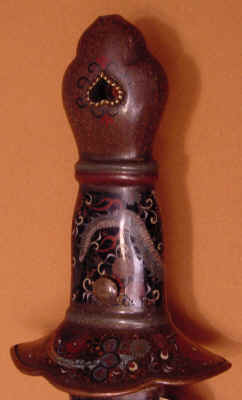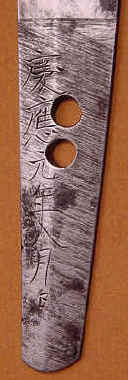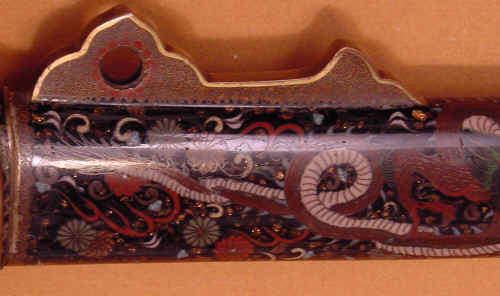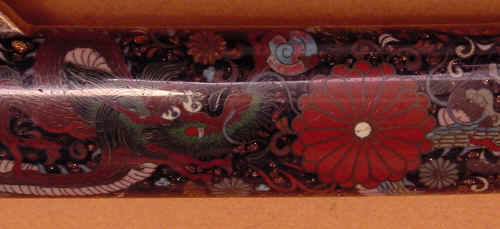| Tanto from the Keiõ
period (1865-1868)in the old "Kara" chinese style. The Kara's were the first swords
used in Japan, and were imported from China, during the Chinese ancient
period (prior to 600 AD). They were then modified to suit Japanese tastes
and necessity. This piece was probably made for a presentation.
The blade is dated from the first year, the eighth month of Keiõ (1865), and signed "Soshu ni oite ju Tanba Shichinosuke Hidekiyo kore o tsukuru" (made by Tanba Shichinosuke Hidekiyo in Sagami province). Hidekiyo was listed with the civilian name "Tsukui Goro'emon", he was a student of the 12th generation Sosha Tsunahir and worked for the Oginoyamanaka fief of Sagami province which was under the control of the Okubo family. (Source: Index of Japanese Swordsmiths, from Markus Sesko, 2012) The blade style is Kogarasu (double edged extending partway to the point). Very nice cloisonné fittings, with the occurrence of the k-mon (symbol of the Chrysanthemum) on both the saya and the habaki. The kiku-moon has an odd 17 crest. The cloisonné is most likely the work of the Nagoya Owari makers.
|
|
|
||
|
Signature |
Date |
|
 |
 |
 |
 |
||
 |
||
 |
||
